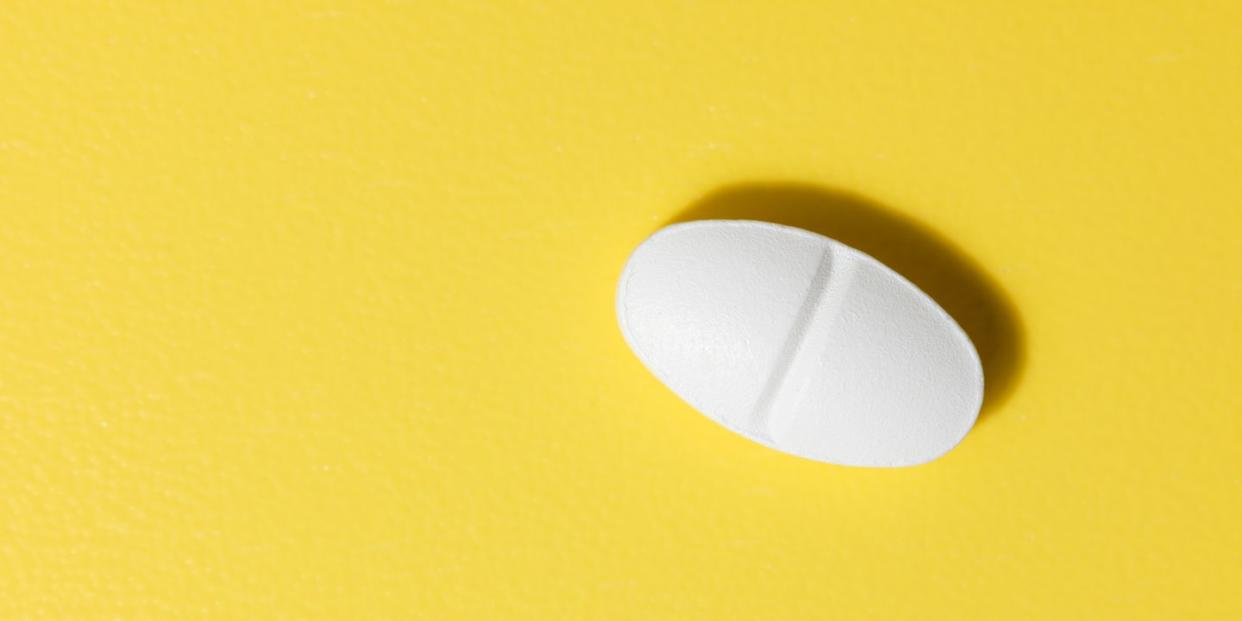Prednisolone side effects explained

Prednisolone suppresses part of your immune system and reduces inflammation and swelling. Prednisolone tablets or liquid are used for many different diseases and conditions, including those below. Prednisolone may also be given by injection if you can't take it by mouth.
It's hard to predict how likely you are to get side effects from prednisolone. It depends on the dose you're taking, how long you take it for and any conditions you have that might make you more susceptible to problems.
In general, taking an occasional course of prednisolone for less than three weeks is unlikely to cause any serious problems. Prednisolone side effects become more likely with higher doses and longer treatment, particularly if you take prednisolone for more than three weeks.
Side effects are less likely with rectal preparations of prednisolone, because less of the medicine is absorbed into the bloodstream.
Side effects are also much less likely with joint injections, because the prednisolone stays in the joint and is very slowly absorbed into rest of the body. The principal side effects following joint injection are a temporary increase in pain and swelling for the first 24 hours and possibly some slight wasting of tissue or thinning of skin at the injection site.
There is also a small risk of introducing infection into the joint, so it's important to tell your doctor if you have a distinct increase in pain accompanied by swelling, further restriction of joint movement, fever and feeling generally unwell after your injection.
The following are some of the possible side effects associated with prednisolone:
● Effects on the skin, such as skin thinning, impaired healing, acne, bruising, stretch marks, increased sweating, change in pigmentation, increased hair growth (hirsutism).
● Mood changes, including being irritable, short-tempered or aggressive.
● Increased appetite and weight gain.
● Mental health problems, such as depression, suicidal thoughts, anxiety, confusion, memory loss, delusions or hallucinations. Make sure you see your doctor immediately if you experience anything like this.
● Increased susceptibility to infections (particularly thrush infections and chickenpox, shingles and measles) and increased severity of infections. It's important to avoid contact with people who have chickenpox, shingles and measles and to see your doctor straight away if you develop any infections during your treatment.
● Effects on the gut, such as indigestion or bloating, feeling sick, ulceration in the stomach or intestine, or inflammation of the pancreas (pancreatitis).
● Muscle weakness or wasting.
● Thinning of the bones (osteoporosis) and increased risk of breaking a bone. You might be prescribed calcium and vitamin D supplements to help avoid these problems.
● Raised blood sugar level and worsening or development of diabetes.
● Changes in your menstrual period.
● Fluid retention.
● Increase in blood pressure (hypertension).
● Decrease in the level of potassium in the blood.
● Decrease in the production of natural steroids by the adrenal glands (adrenal suppression). If you've been taking prednisolone for more than three weeks it's vital that you don't suddenly stop taking it and that you carry your blue steroid card with you at all times.
● Effects on the eyes, such as raised pressure inside the eye (glaucoma), cataracts.
● Slowed growth in children and adolescents.
● Hiccups.
● Blood clots in the blood vessels (thromboembolism).
● Cushing's syndrome.
If you want more information about the possible side effects of prednisolone you should read the leaflet that comes with your medicine or talk to your doctor or pharmacist.
Try not to worry too much about the possible side effects of taking prednisolone - remember that your doctor will only prescribe it if the benefits of taking it outweigh the risks. If you do get troublesome side effects these can often be managed by reducing your dose or by taking other medicines (both should only be done on the advice of your doctor). They should improve once you can stop taking prednisolone.
If you think you have experienced a side effect, did you know you can report this using the yellow card website?
What monitoring might I need while taking prednisolone?
This depends on what conditions you have and how long you need to take prednisolone for. For example, if you need long-term treatment your doctor might want you to have your blood pressure checked regularly, have eye tests to check for glaucoma or cataracts, or give regular blood samples to check for diabetes and various other possible side effects.
Last updated: 31.10.2020
You Might Also Like

